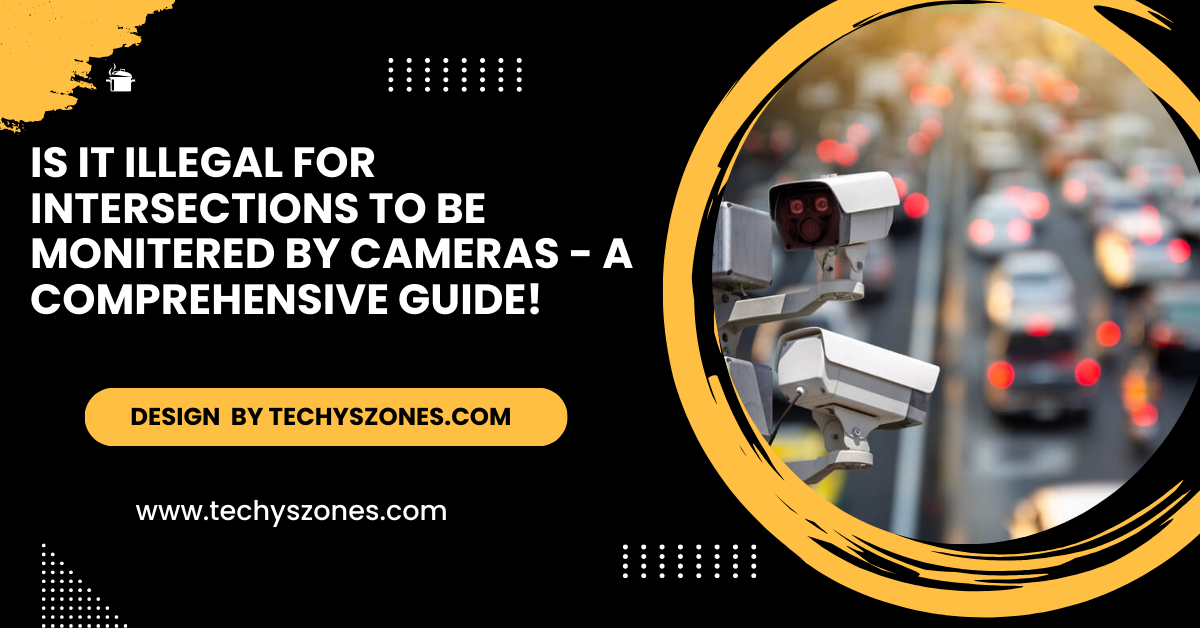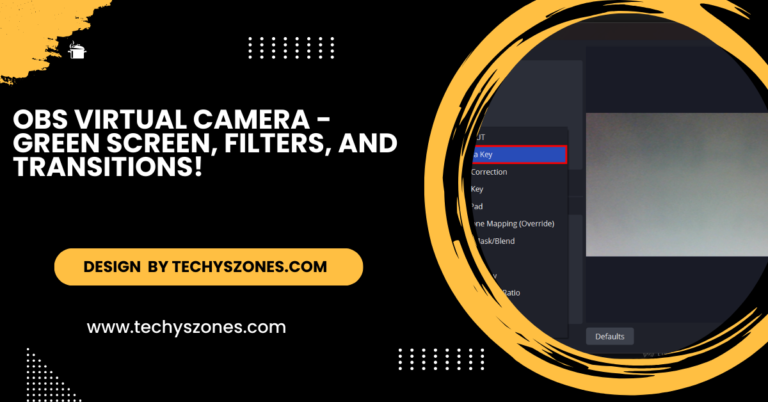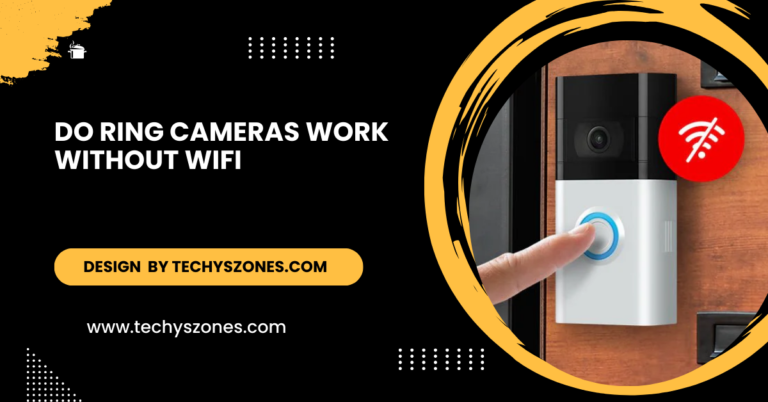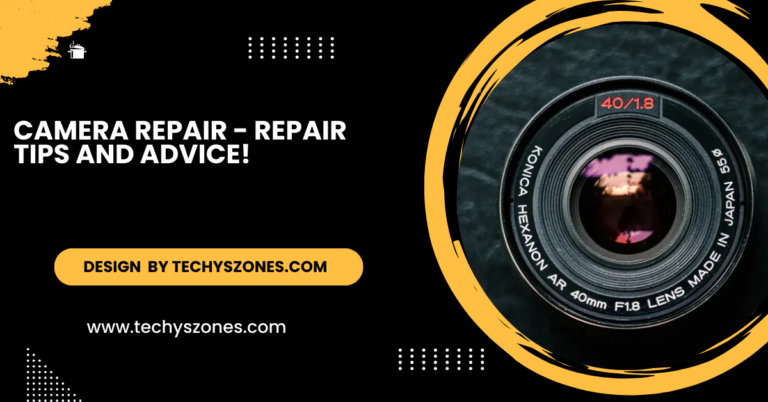Is It Illegal For Intersections To Be Monitered By Cameras – A Comprehensive Guide!
Intersection monitoring cameras are legal in many regions but vary by location. They help with traffic enforcement, though concerns about privacy and fairness remain.
In this article, we explore whether it is illegal for intersections to be monitored by cameras, the regulations surrounding them, and the ethical concerns that come with their use.
What Are Intersection Monitoring Cameras?
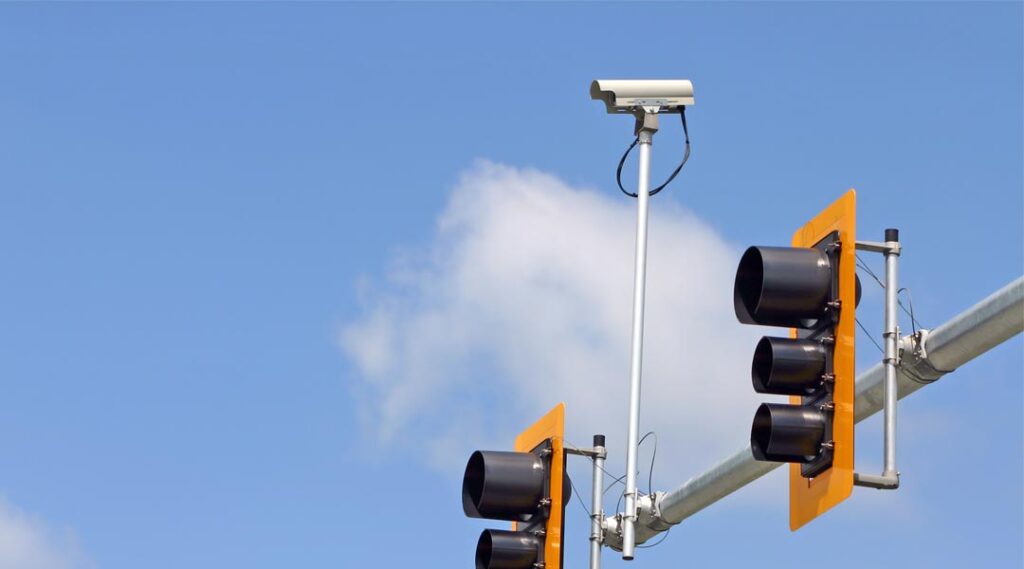
Intersection monitoring cameras are systems installed at busy traffic intersections to capture images or videos of vehicles as they pass through. The most common types of monitoring cameras include:
- Red Light Cameras: These cameras capture images of vehicles that run red lights, providing evidence for issuing tickets.
- Speed Cameras: Installed to monitor the speed of vehicles traveling through intersections, these cameras help enforce speed limits.
- Surveillance Cameras: General traffic cameras that monitor intersection activity for various purposes, such as tracking traffic flow or preventing crimes.
These cameras can either automatically issue fines or be used for traffic monitoring and investigation purposes.
Are Intersection Monitoring Cameras Legal?
The legality of intersection monitoring cameras depends on the country, state, or city in which they are installed. Generally, these cameras are legal when they are installed following local laws and regulations. However, there are certain requirements and restrictions that govern their use:
- Notification Requirements: In many regions, traffic cameras must be clearly marked with visible signs indicating their presence. Drivers should be aware of the monitoring system in place, ensuring that it complies with transparency laws.
- Government Approval: Before installing traffic cameras, local governments typically need to approve the project. This involves consultations and sometimes even public debates regarding the effectiveness and fairness of the cameras.
- Privacy Concerns: Many jurisdictions have strict privacy laws that govern how surveillance footage is used. For example, the footage collected must be used only for traffic enforcement and not for other purposes, such as tracking citizens’ movements.
- Court Decisions: In some places, the legality of intersection cameras has been challenged in courts. Some court rulings have found red light and speed cameras to be illegal because they were not properly authorized or violated citizens’ rights to privacy. For example, certain cameras may be ruled invalid if they issue fines based on footage without human review.
- State-Specific Rules: The use of these cameras varies by state in the U.S. In some states, red light cameras and speed cameras are permitted, while in others, they may be banned or restricted. For instance, states like California and Arizona have established legal frameworks for using traffic cameras, whereas places like Texas have banned red light cameras altogether due to concerns over fairness and transparency.
Ethical and Legal Challenges:
While intersection monitoring cameras are designed to enhance safety, there are ethical and legal concerns that come with their use:
- Invasion of Privacy: Critics argue that surveillance cameras infringe upon personal privacy by monitoring the movements of drivers and sometimes pedestrians without their consent. In areas where these cameras are heavily used, it can feel like a constant watch over citizens’ daily lives.
- Fairness of Ticketing: Another concern is whether traffic tickets issued by cameras are fair and accurate. Some believe that automated systems lack the judgment needed to account for special circumstances, such as a driver making a quick decision to avoid an accident or an emergency situation.
- Revenue Generation: Some critics claim that cameras are used primarily as a revenue-generating tool rather than for public safety. This is especially the case in cities where traffic cameras have been installed without clear evidence of their effectiveness in reducing accidents or improving traffic flow.
Also Read: Camp Snap Camera – Perfect for Young Creators and Adventurers!
How to Stay Safe and Avoid Traffic Camera Violations:
While many jurisdictions allow traffic monitoring cameras, drivers should still be aware of how to avoid violating traffic laws. Here are some tips for staying compliant:
- Obey Traffic Signals: Always follow traffic lights and signals to avoid fines from red light cameras.
- Follow Speed Limits: Pay attention to speed limits, especially in areas where speed cameras are installed.
- Look for Signs: Watch for signs that indicate the presence of traffic cameras in the area.
- Stay Updated on Local Laws: Familiarize yourself with the traffic laws in your area, as they can change over time.
FAQ’s
1. Are intersection monitoring cameras legal?
Yes, intersection monitoring cameras are legal in many parts of the world, including various states in the U.S. However, their legality varies depending on local laws and regulations. Some regions have implemented strict rules, while others have banned the use of certain types of traffic cameras.
2. Do intersection cameras violate privacy laws?
Privacy concerns are a major issue with intersection cameras. While these cameras are typically used to capture traffic violations, some argue that they infringe on individual privacy, especially if the footage is repurposed for other uses like criminal investigations.
3. Are drivers notified about traffic cameras?
In many regions, traffic cameras are required to be clearly marked with signs warning drivers of their presence. However, in some places, this may not always be the case, leading to disputes over the fairness of fines issued by automated ticketing systems.
4. Can intersection cameras be challenged in court?
Yes, in some cases, drivers can challenge tickets issued by traffic cameras in court. If there are errors in the footage or if the camera violated procedural rules, the ticket may be invalidated. Additionally, some regions have strict requirements for human oversight in the ticketing process, which can also be a point of challenge.
5. How can I avoid getting a ticket from traffic cameras?
To avoid fines from intersection cameras, always obey traffic signals, adhere to speed limits, and stay alert for signage that indicates the presence of cameras. Driving defensively and ensuring you stop completely at red lights can also help avoid violations.
Conclusion:
In conclusion, intersection monitoring cameras are legal in many regions, serving as tools for enhancing traffic safety and enforcing traffic laws. While they offer numerous benefits, concerns about privacy and fairness persist. It’s crucial for drivers to stay informed about local laws, adhere to traffic regulations, and be aware of the presence of traffic cameras to avoid penalties.

